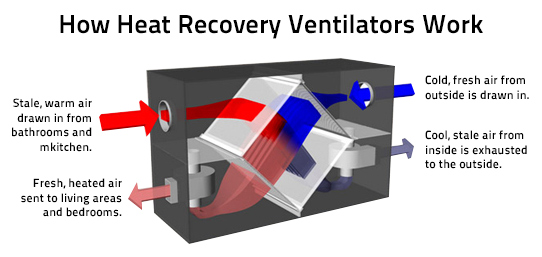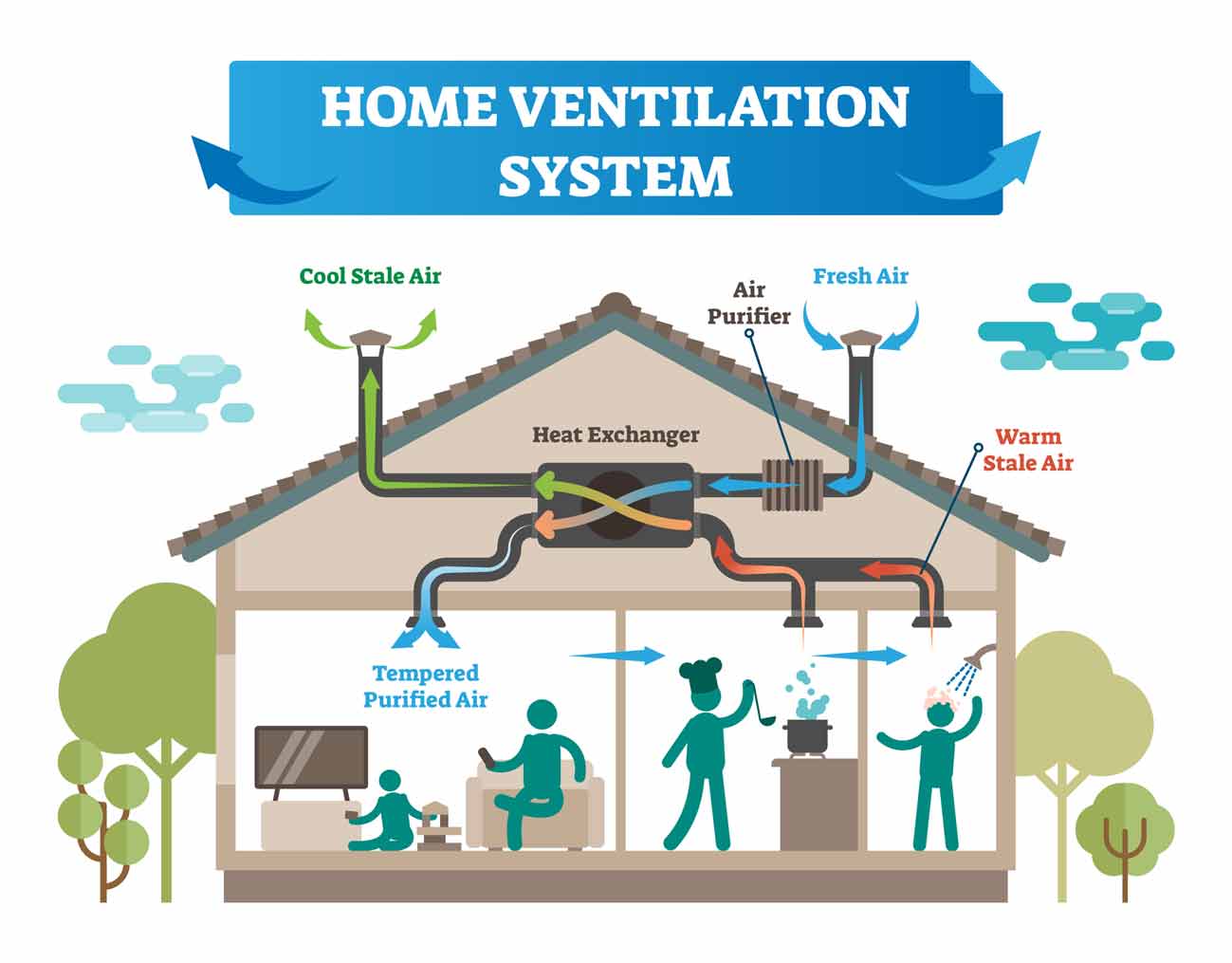Misconceptions About HRV That Homeowners Should Know
Wiki Article
Discovering the Perks of Heat Recovery Ventilation for Energy Performance in Homes
Heat Recovery Ventilation (HRV) systems use home owners a sensible approach to boosting power effectiveness. By redeeming warm from outward bound air, these systems can significantly reduce home heating and cooling expenses. Additionally, they give a consistent supply of fresh air, enhancing indoor air top quality and convenience degrees. As homeowners think about sustainable choices, recognizing the nuances of HRV systems becomes significantly essential. What aspects should one examine prior to making such a financial investment?Understanding Heat Recovery Ventilation Solutions

Exactly How HRV Enhances Indoor Air Quality

Energy Cost Savings: The Monetary Advantages of HRV
Maximizing power effectiveness, heat recovery ventilation (HRV) systems use considerable economic benefits for property owners. By recuperating and recycling warmth from exhaust air, HRVs significantly decrease heating and air conditioning expenses. This technology can bring about power financial savings of as much as 30%, depending on climate and use patterns. Homeowners frequently notice lowered energy bills quickly after installment, making HRVs a monetarily smart investment with time. In addition, numerous regions provide rewards or discounts for energy-efficient upgrades, better enhancing the economic charm. As energy prices remain to increase, the cost-effectiveness of HRVs ends up being progressively clear. On the whole, the unification of HRV systems not only advertises power efficiency HRV Heat Recovery Ventilation however additionally adds to long-term financial savings for families.The Ecological Impact of Heat Recovery Ventilation
A considerable ecological advantage of heat recovery ventilation (HRV) systems depends on their capability to lower overall power consumption. By recovering warm from exhaust air and transferring it to inbound fresh air, HRV systems lessen the requirement for energy-intensive heating and cooling down techniques. This reduction in power need adds to decrease greenhouse gas exhausts, as much less nonrenewable fuel source is called for to maintain comfy interior temperature levels. Furthermore, HRV systems improve interior air high quality by successfully exchanging stale air with fresh exterior air, lowering reliance on mechanical air conditioning systems that can damage the environment. Overall, the application of HRV systems supports sustainable living methods and lines up with worldwide initiatives to battle environment change by advertising power efficiency in household settings.
Choosing the Right HRV System for Your Home
Just how can property owners assure they pick the best heat recovery ventilation (HRV) system for their needs? First, they should assess their home's size and design, as these factors affect airflow requirements. Next off, evaluating the system's efficiency rankings is vital, as greater rankings show better performance and power cost savings. Homeowners need to likewise consider installation and maintenance costs, contrasting different brands and versions for value. In addition, it is very important to review sound levels, as some systems operate even more silently than others. Consulting with a/c professionals can offer tailored suggestions based on certain home conditions. Finally, checking out customer testimonials and service warranties can assist in making a notified choice, guaranteeing that the picked HRV system properly improves interior air high quality and power efficiency.Frequently Asked Concerns

How Commonly Should I Clean or Keep My HRV System?
The regularity of cleansing or keeping a heat recuperation air flow (HRV) system generally relies on use and ecological elements. Typically, it is recommended to do upkeep every six months to assure peak performance and air high quality.
Can HRV Systems Help In Reducing Moisture Levels Inside?
HRV systems can successfully lower indoor moisture levels by exchanging stale, moist air with fresh, drier air from outside. HRV Heat Recovery Ventilation. This process assists keep a balanced interior setting, boosting convenience and stopping moisture-related issues
What Is the Life expectancy of a Normal HRV System?
The life expectancy of a typical heat recovery ventilation (HRV) system differs, normally lasting between 10 to 15 years. Normal upkeep can expand its effectiveness and operational life, ensuring peak performance throughout its usage period.Exist Any Sound Interest In HRV Equipments?
Sound worry about HRV systems can develop, particularly from follower procedure. Many contemporary devices are designed to lessen audio degrees, guaranteeing they operate quietly while preserving performance, which resolves potential disruptions in living settings.Can I Set Up an HRV System Myself, or Do I Required a Specialist?
The private contemplated whether to install the heat recovery ventilation (HRV) system personally or hire a professional. Normally, while DIY installment is feasible, know-how assurances appropriate performance and compliance with local building regulations, enhancing system effectiveness.Report this wiki page